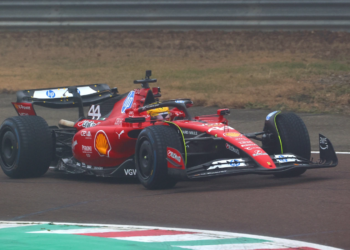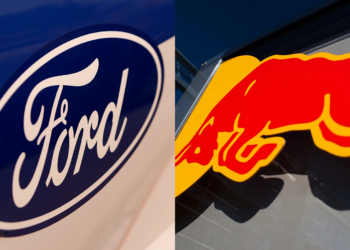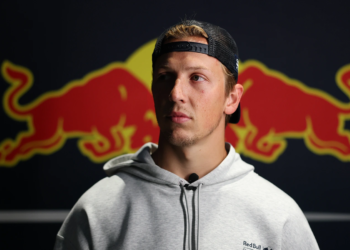Lewis Hamilton signed off in style to round out 2019 with his 11th victory of a title-winning campaign. Motorsport Week presents its conclusions from Abu Dhabi.
Signing off in style
The respective World Championships have effectively been a non-contest since the summer break, such was the advantage amassed by Lewis Hamilton and Mercedes through the opening half of 2019. But from Belgium through Brazil the grands prix, while not exactly even, were often close-run encounters between Formula 1’s leading three operations. The Silver Arrows still won five races, including four in a row, but Ferrari’s formidable qualifying pace and the lingering threat of Red Bull-Honda meant Mercedes could rarely relax. The statistics were also skewed by Ferrari’s self-inflicted defeat in Russia and Max Verstappen’s messy race in Mexico. But in Abu Dhabi it was altogether a different scenario. Lewis Hamilton’s 2019 campaign has not been as impressively standout as his 2018 triumph – and yet that is largely because he has simply improved upon an already exceptional operating platform that we have become accustomed to relentless greatness. The Hamilton/Mercedes combination is on occasion utterly crushing in its dominance and that was the case in Abu Dhabi, as he finished 17 seconds of Max Verstappen, and 43 clear of Charles Leclerc. This was not a contest but an exhibition from one of the best driver/team combinations there has ever been.
Mercedes’ might shows Ferrari the way
This has been a thoroughly disappointing campaign for Ferrari as it finished the season with just three victories, while both drivers were eclipsed by Max Verstappen in the Drivers’ Championship. Ferrari had three blunders during the course of the Abu Dhabi Grand Prix weekend that could have been more crucial had the ‘dead rubber’ feel of the paddock not been so prevalent. Its Q3 out-lap mistake cost Charles Leclerc a second push lap – albeit with the suspicion that placing higher was unlikely – while in double-stacking its drivers at the pit stop it created an unnecessary risk that ultimately resulted in a delay. The fuel measurement discrepancy pre-race also raised the attention, with the suspicion that it was the first domino that could fall into place over alleged breach of the technical regulations regarding the power unit. A difference of 4.88kg is substantial (equivalent to 4% of the overall race fuel) and there were more than a few surprised faces to suggest that Ferrari had ‘got away with it’, for want of a better phrase. Ultimately in a race with little action and no interruptions one Ferrari driver was beaten by a Mercedes that started last, and the other barely held it off. That was the biggest sucker punch to end an underwhelming season.
.jpg)
Brilliant Perez
Sergio Perez was mired down the standings mid-season after the longest drought of his career, accentuated by Racing Point’s relative lack of speed. But since the summer break Perez has been exceptional, missing out on a top 10 only in Singapore due to an oil leak. In Abu Dhabi he was compromised by the Pierre Gasly/Lance Stroll Turn 1 collision, relinquishing a spot to Kevin Magnussen, and remained stricken behind the Dane. But Perez ran a strong 37-lap stint on Mediums before using his fresher Hards to good effect, passing Nico Hulkenberg before reeling in Lando Norris and launching a stunning move on the final lap. Norris was admirably fair in defending, shirking the opportunity to edge Perez wide, and it capped a brilliant race and second half of the season for Perez and Racing Point.
Renault needs a reset
Renault entered 2019 with an ambition to close the deficit to the top three teams but in the end only narrowly fended off Toro Rosso in the points, with former driver Carlos Sainz Jr. individually out-scoring the manufacturer. Renault finished the year with 11th and 12th in the race, having fallen back after struggling on the Hard tyres. Looking ahead to 2020 Ricciardo said: “Speaking with the aero guys, the philosophy of how we designed the car, and especially the front of the car this year. They are pretty confident that that was not the best way to go. Looking at some other teams, to develop the car we can change that and get a lot more out of it as the year goes on. With the updates we didn’t really get that much, so we have a bit in hand.”

It’s a goodbye to them
Last weekend’s event marked a farewell to Nico Hulkenberg and Robert Kubica, as they bowed out from Renault and Williams respectively. For Hulkenberg it was a career of ‘what ifs’ and missed chances, as he conceded prior to the weekend that he’d caught a replay of the 2012 Brazilian Grand Prix on Sky and was “my heart was bleeding. Yeah that was the day… Before the safety car I was leading by 50 seconds. So that was a special race, a special day, a very young Hulky, but yeah that was one special drive for the history books.” For Kubica his comeback was not the glorious tale as he spent the year mired with a woefully uncompetitive car, from which he lacked feel and understanding at almost every step. Nevertheless the record books will always show that he scored one point, however fortuitous it may have been, and considering the spirit, the determination and the resilience needed to even consider a comeback it can only be considered a success.






